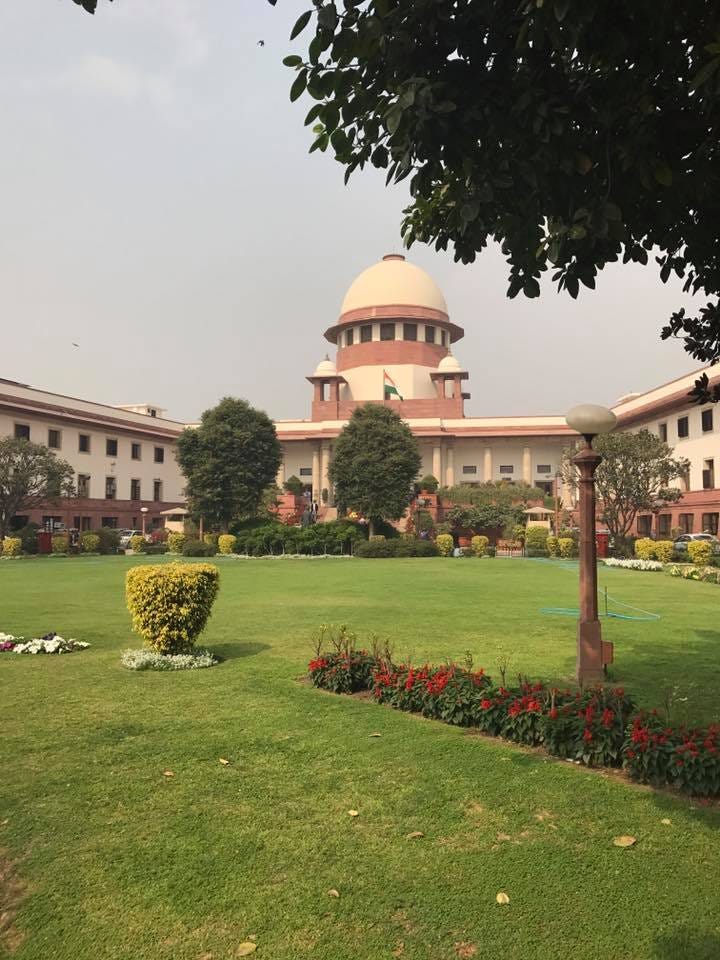Forest Conservation (Amendment) Act, 2023 Challenged in the Supreme Court
Legal Challenge to the Forest Conservation (Amendment) Act, 2023 takes Centre Stage.

Legal Challenge to the Forest Conservation (Amendment) Act, 2023 Takes Centre Stage
On 20th October 2023, the Supreme Court issued notice on a writ petition challenging the constitutionality of the recently enacted Forest Conservation (Amendment) Act, 20231. This legal challenge was spearheaded by retired civil servants with significant roles in the Ministry of Environment, Forest and Climate Change (MoEFCC), as well as by former principal chief conservators of forests and ex-members of the National Board for Wildlife (NBWL).
A Brief Recap of the Amendment’s Journey Through Parliament
The Forest Conservation (Amendment) Act, 2023 had earlier navigated the legislative landscape unscathed, securing assent from both Houses of Parliament in the last monsoon session. It received Presidential approval and was officially published in the Gazette on 4th August 2023. Despite its legislative success, the amendment now finds itself in legal crosshairs, as environmental advocates raise questions about its constitutional validity.
Judicial Challenge in the Supreme Court
The Supreme Court on Friday (October 20, 2023) issued notice on a plea challenging the constitutionality of the recent amendments to the Forest (Conservation) Act.
A bench of Justices BR Gavai, Aravind Kumar, and Prashant Kumar Mishra was hearing a writ petition filed by retired civil servants, including a former secretary and an additional secretary to the Ministry of Environment, Forest and Climate Change (MoEFCC). Also among the petitioners are five former principal chief conservators of forests and ex-members of a standing committee of the National Board for Wildlife (NBWL).
The petitioners have contested the constitutionality of the Forest (Conservation) Amendment Act, 2023, citing concerns that the new law would significantly undermine the country’s long-standing forest governance framework. They have said that the amendment represents a ‘complete dereliction of duty’ imposed on the State to protect and improve the environment. Accordingly, emphasising the adverse implications of the amendments on the environment, biodiversity, and climate resilience on the one hand; and the constitutional imperatives enshrined in Articles 14, 21, 48A, 51(c), and 51A(g) of the Constitution on the other hand, the petitioners have asked for the impugned amendment act to be invalidated. In support of their contention that the recent amendments ought to be set aside, they have also invoked several seminal principles of Indian environmental law, such as precautionary principle, intergenerational equity, principle of non-regression and public trust doctrine, all of which have allegedly been overlooked.
The 2023 Amendment Act, it has been contended, restricts the scope of the Forest (Conservation) Act 1980 by effectively altering the definition of forest land that falls within its purview. Such a change, according to the petitioner, contravenes the principles set forth by the Supreme Court in its 1996 order in TN Godavarman Thirumulpad. This is an omnibus forest protection matter in which the court issued the longest-standing continuing mandamus in the field of environmental litigation. Since 1996, when the writ jurisdiction of the court was first invoked by a plea to protect the Nilgiris forest, numerous orders have been passed on a vast array of issues, such as deforestation, logging, mining, compensatory afforestation, and endangered species.
The former civil servants have further argued that the amendments allow for exemptions for various projects and activities in forest lands, potentially serving commercial interests at the expense of the broader public welfare. The petition states –
“In the [1996] order, the court held that the aim of the Forest (Conservation) Act is to protect against ecological imbalance which would necessarily require ‘forest land’ in Section 2 of the act to include not only forests as understood in the dictionary sense but also any area recorded as forest in the government record irrespective of the nature of ownership or classification. Forest lands which until recently enjoyed the protection of law due to this expansive interpretation provided by this court will now be stripped of any legal protection. The 2023 Amendment Act arbitrarily permits several categories of projects and activities in forest land, while exempting them from the purview of the Forest (Conservation) Act. These projects and activities are vaguely defined in the impugned law, and could be interpreted in a manner that serves vested commercial interests, at the cost of much larger public interest.”
Each diversion of land without any cumulative ceiling being prescribed across the country, the petitioners have further argued, will ‘pockmark’ our forests with cancerously growing deforested islands and fragment them, causing enormous ecological loss. They have also raised concerns over the ‘vagueness’ surrounding project definitions and the potential for large-scale destruction of forest lands. To illustrate their contention, the petitioners have referred to provisions pertaining to security-related infrastructure, plantations, and reforested areas.
Apart from this, the former civil servants have expressed reservations about the delegated legislative powers granted to the government under the amended act, insisting that the absence of adequate guidelines for exercising such discretion could facilitate forest land diversion without appropriate regulatory oversight.
Notably, the petitioners have also called into question the rigour of the pre-legislative consultation process, alleging that a joint committee of parliament entrusted to review the legislation disregarded crucial evidence and overlooked critical concerns voiced by various stakeholders –
“The joint parliament committee repeatedly overlooked the lack of evidence to support the need for the amendment, completely disregarded the concerns and suggestions put forth by different stakeholders, and blindly accepted submissions made by the MoEFCC. The ministry, as it appears from its submissions – many of which were vague and evasive – based its decisions on the goal of facilitating ‘ease of business’ for those with commercial interests, and this unfortunately appears to be the raison d’être of the impugned legislation.”
Additionally, concerns were raised about the parliamentary committee accepting ‘at face value’ an assurance made by the environment ministry that all categories of forests defined by the state expert committees constituted in terms of the Supreme Court’s 1996 order would be given protection, without assessing the state expert committee reports. The petitioners have, in this connection, advocated for a ‘Brandeis brief’ approach with the goal of outlining the actual or probable social effects of legislation, especially because the damage caused to the environment by a ‘constitutionally deficient’ legislation would be irreversible. The petition states –
“These reports would have provided crucial information about the location and nature of forest lands across the country. However, little information about these state expert committees and their reports is available in the public domain. It is not known whether these SECs were even formed in all states; how many reports were submitted; and what is the quality of these reports. Yet, the MoEFCC places reliance on them, and the JCP accepts their existence and content without question.”
In conclusion, the petitioners have argued –
“India is one of the most vulnerable countries to impacts of climate change, and weakening its ecological security by permitting rampant deforestation will only worsen the country’s adaptive capacity. India’s forests are a crucial defence against the climate crisis. Significantly, it is now established that the carbon sequestration potential of natural forests is 40 times greater as compared to plantations, and therefore we as a country cannot afford to lose our natural carbon sinks as the alternatives such as plantations are evidently not as effective. A law that is so manifestly arbitrary in its scope, blatant in its intent to circumvent the interpretation of the law as adopted by this court, and will likely endanger ecological and food security of the country must be struck down.”
Case Details
Ashok Kumar Sharma, IFS (Retd) & Ors. v. Union of India & Ors. | Writ Petition (Civil) No. 1164 of 2023.
A Balanced Verdict Expected: The Supreme Court's Role in Reconciling Conflicting Interests
While the Supreme Court has historically leaned towards pro-environment and pro-ecology stances, the present case necessitates a more nuanced approach. It beckons the Court to strike a delicate balance among an array of conflicting interests: environmental conservation, wildlife protection, livelihoods of communities, national security, and development goals. All these aspects must be examined through the lens of constitutional propriety, and be informed by global best practices and standards. It is hoped that the Supreme Court will arrive at a balanced verdict that harmonises these diverse yet interconnected realms, serving as a beacon for judicious governance and sustainable development.
Forest Laws Amendment of 2023: Progressive or Perverse Legislation?
The Forest Conservation (Amendment) Act, 2023 The Forest Conservation (Amendment) Act, 2023, received the assent of both Houses of Parliament during the last monsoon session. It was granted Presidential assent and published in the Official Gazette on 4th August 2023




